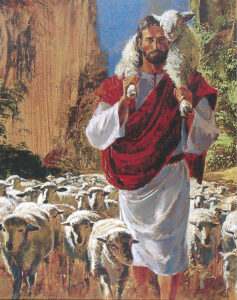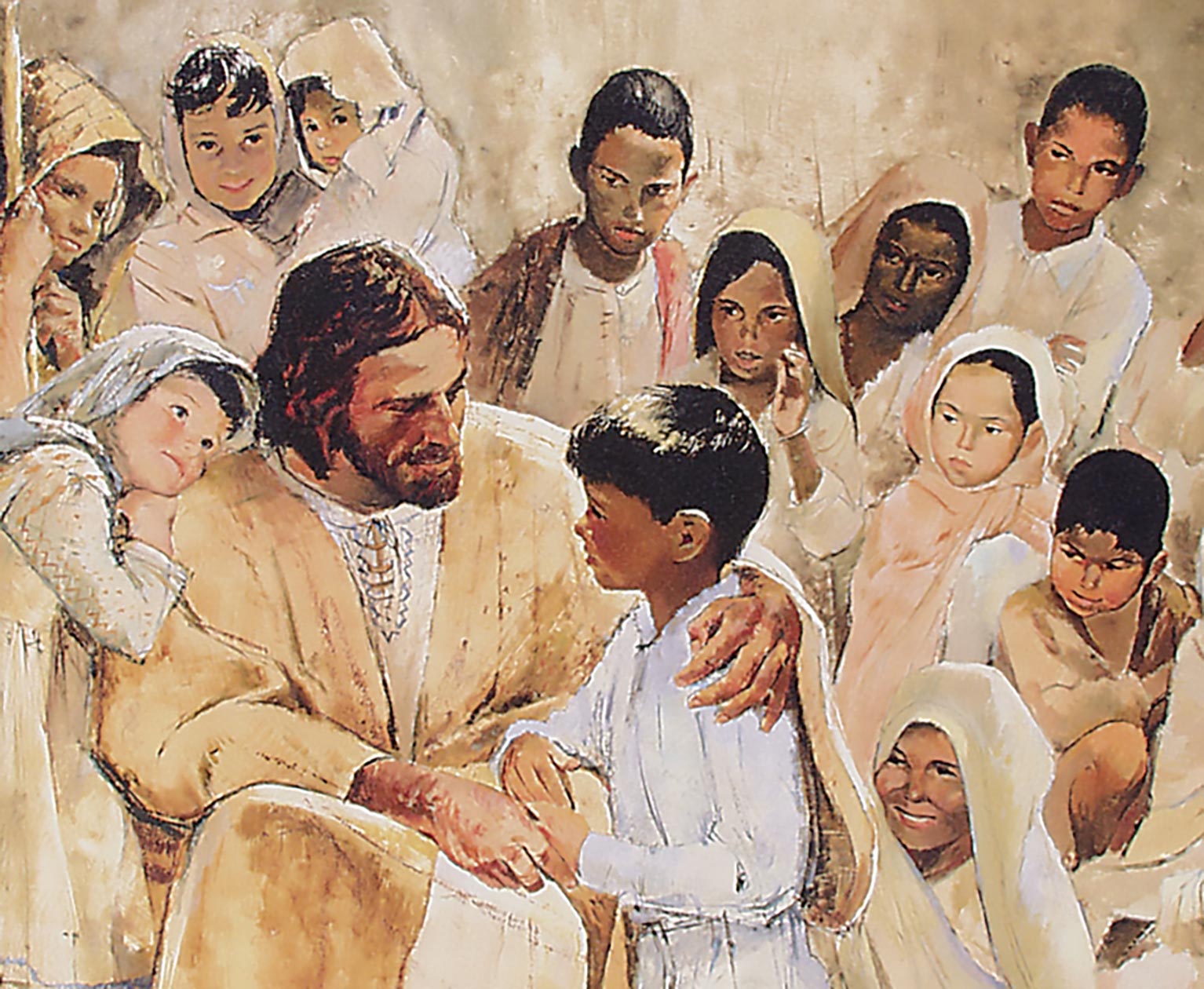
My youngest son will be confirmed this Pentecost Sunday and I had the privilege of being one of his instructors (in addition to the “head of the household” instruction that my wife and I antiphonally carry out). I still have this great picture of him as a little toddler falling asleep with the catechism in hand—a cute coincidence that gives his theology-nerd dad yet one more reason to geek out.
Toby is a good boy, gifted, funny, curious, but most of all, the thing I’m most thankful for, he loves Jesus. He recognizes the voice of his Shepherd. And that Shepherd loves him … even up to laying down his life for him, a precious little lamb.

Choosing a day to celebrate junior Confirmation is a bit of a practical conundrum. If you have your eye on historical practices, Easter Vigil is a logical choice, but that also comes from a time of largely adult catechumens in which baptism was the culmination of their instruction (in the early church, confirmation was not yet a thing but grew out of the baptismal practice of chrism—i.e. the laying on of hands with the anointing of oil to indicate the gift of the Holy Spirit that accompanies baptism, cf. Acts 8:14-17). Still, the connection of baptism to the death and resurrection of Christ in the Pascal celebrations gives this day rich theological connections to Confirmation today. Easter Vigil has only recently gained traction among Lutheran congregations, though it’s far from common or uniform. I think it’s worth adding the Vigil to our Holy Week observances, but bringing in our tradition of Confirmation as well may be a lot to ask.
Because Lutheran Confirmation traditionally (in the last several hundred years) marked admittance to the Lord’s Supper, Maundy Thursday has become a popular day among some congregations (though now it is more often connected to first/early communion). Because of the traditional connection to the laying on of hands and the gift of the Holy Spirit, liturgical red Sundays have garnered the lion’s share of Confirmation celebrations, especially Palm Sunday and Pentecost.
While I appreciate the theological associations of these days (and the practical propinquity of such days with the end of a scholastic, and thus catechetical calendar), I have always felt a bit cheated. That is to say, I have always felt that the rich themes of Palm Sunday, Maundy Thursday, and Pentecost were given short shrift when Confirmation was inserted into those days. They deserve their own dedicated, attention, in my opinion. I admit that this is my personal Bedenken—others may find the associations with Confirmation not only fitting but enriching. Nonetheless, let me offer an additional possibility.

Good Shepherd Sunday. Depending on which lectionary one follows, Good Shepherd Sunday falls on the third or fourth Sunday after Easter. On the Sundays immediately after Easter, the Gospel readings focus on Easter and post-Easter appearances of Jesus. Later, the readings lean forward, anticipating Pentecost and the gift of the Spirit. But Good Shepherd Sunday stands in between these, a distinct Sunday in the Easter season and a little outside the logic of its lectionary. Yet the church treasures the themes of this day and I believe they fit very well with the purpose of Confirmation.
Consider how Luther defines the church in the Schmalkald Articles, “For, thank God, a seven year old child knows what the Church is, namely, the holy believers and lambs who hear the voice of their Shepherd.” A child knows the church because of the voice of the Shepherd. Isn’t that what is being confirmed by the church and professed by the young people on Confirmation day—that in baptism Jesus called his lambs by name, that hearing his Word these children have learned to know and follow Jesus as their Shepherd, that He has graciously and richly provided for them from baptism until now, and that they intend, by God’s grace, to hold on tightly to His promise that “I give them eternal life, and they will never perish, and no one will snatch them out of my hand”?
What a beautiful hinge between the Sundays that meditate on the Jesus of Easter and the Sundays that anticipate the gift of the Spirit. What a beautiful store of promises. He who has laid down his life for the sheep and taken it up again, He who has given his church the Spirit as consolation and a guide into all truth—this one is the great Shepherd of the sheep. He will never forsake his lambs. He will never leave them to be hounded by the enemy. He will always provide, always nourish, always protect.
Junior Confirmation nearly always comes at a point of transition and change in a young person’s life. Physically, emotionally, socially, the confirmand lives in enormous flux. At this time, as we take a moment as the church to mark and confirm the life and faith that Christ’s Spirit has worked in these young people, the constancy and strength of the promises embodied in the Good Shepherd passages can be presented as an anchor for the confirmand’s identity and future.
Further, the Good Shepherd is not just an image of pastoral consolation and security. The biblical shepherd is also an image of Israel’s kingship. David was a shepherd, called from his flocks to shepherd God’s people (Ps. 78:70-72), but this is because God himself rules his people as a shepherd-king (Ps. 28:9, Ezek. 34). When Jesus promises that he is the good shepherd, he is pulling all of these themes together. In the midst of all the competing calls for allegiance in our culture, the confirmand will hear clearly on this day that Jesus is our King and Lord. “But what is it to have a Lord?” Luther famously asks in the catechism. “It is this, that He has redeemed me from sin, from the devil, from death, and all evil. For before I had no Lord nor King, but was captive under the power of the devil, condemned to death, enmeshed in sin and blindness. … There was no counsel, help, or comfort until this only and eternal Son of God … came from heaven to help us. … has taken us as His own property under His shelter and protection, that He may govern us by His righteousness, wisdom, power, life, and blessedness.”
The hymnody connected with this Sunday is also full of rich imagery that reinforce all of these themes. With 13 year-old confirmands in front in the church, the poignancy of “I am Jesus Little Lamb,” just got a major boost (okay dad, don’t cry … don’t cry … don’t cry). And then there is Ps. 23 … memorized and recited along with the profession of their faith. The possibilities multiply.
But these are just possibilities. A proposal … with no entailed judgments for alternatives. The more important questions have to do with what and how we form our confirmands in the faith. However we do it, and whenever we celebrate it, we pray to our King, Shepherd, and Lord that “goodness and mercy would follow them all the days of their lives and that they would dwell in the house of the Lord forever.”
Erik Herrmann



Leave a Reply
You must be logged in to post a comment.